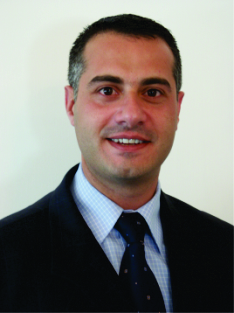Fadwa Tuqan is the Grande Dame of Palestinian letters. She is considered to be one of the best pioneering contemporary Arab poets. Born in 1917 to one of Nablus’ leading families, Tuqan, whose work has won several international prizes, knew Palestine under British rule, the creation of the state of Israel, the occupation, and Palestinian autonomy. Although she grew up in an environment favorable to artistic ferment, her brother, the poet Ibrahim Tuqan, introduced her to poetry. She suffered as an unwanted child in her ultra-traditional family, with a despotic father and a submissive mother, and was not allowed to go to school. In the first volume of her memoirs, titled A Mountainous Journey, Tuqan tells the moving story of her childhood and adolescence constricted by rigidities and rules. The power of her vocation as a poet and the help of her brother enabled her to find personal freedom and ultimately express her solidarity with her people. In the second volume of her memoirs, The Most Difficult Journey, Tuqan recounts her sufferings under occupation, reveals her hopes for a lasting peace, and shares testimonies of the understanding and support she received from her friends, Palestinian and Israeli.
The refined poet started her career writing about nature, love, loneliness, and sadness before turning to nationalist themes after the Israeli occupation of the West Bank and Gaza Strip in 1967. She began writing in the traditional form, but became one of the leaders of the use of the free verse in Arabic poetry. She is called the poet of love and pain because her poetry deals with themes of personal and national love and loss, with feminine explorations of love and social protest. After 1967, she also began to write patriotic poems. Her nationalist works tell of the struggle of her people that were stripped of their land and liberty, describing the cruelty of the occupation. Tuqan is furthermore the author of many academic research works that focus on the role of Palestinian women in resisting the Israeli occupation.
The Deluge and the Tree
When the hurricane swirled and spread its deluge
of dark evil
onto the good green land
‘They’ gloated. The western skies
reverberated with joyous accounts:
“The Tree has fallen!
The great trunk is smashed! The hurricane
leaves no life in the Tree!”
Had the Tree really fallen?
Never! Not with our red streams flowing forever,
not while the wine of our torn limbs
feed the thirsty roots,
Arab roots alive
tunneling deep, deep, into the land!
When the Tree rises up, the branches
shall flourish green and fresh in the sun
the laughter of the Tree shall leaf
beneath the sun
and birds shall return
Undoubtedly,
the birds shall return. The birds shall return.
Translated by Naomi Shihab Nye with the help of Salma Khadra Jayyusi.
Tuqan is the most productive of all Arab women poets. Between 1958 and 1970 she published five volumes of poetry. Her second volume, entitled I Found It, is considered her actual mature beginning and reveals a woman who has become more forward, more adventurous, and more courageous. Critics such as Salma Khadra Jayyusi assert that she was the first Arab woman poet to talk openly about love, proclaiming that “Fadwa’s mounting candor about her emotional life, as portrayed in her verse, remains an amazing feat of pioneering courage.” In addition to I Found It (1958), her other collections include In Front of the Closed Door (1967), Horsemen and the Night (1969), and Alone on the Summit of the World (1973). Her work is presented in English translation in several major anthologies, including Modern Arabic Poetry: An Anthology (Columbia University Press, 1987).
A poet all her life, Tuqan’s first attempt at writing prose is her autobiography, A Mountainous Journey, her richest contribution to Arab women’s literature. It was first published in Arabic in 1985 and in English in 1990 by Women’s Press, London. For an Arab woman, regardless of age, to write an autobiography is not an easy task because of social constraints on the one hand and the constraints of the form itself on the other. However, Tuqan assumed the necessary courage to write about her childhood and adolescence in Nablus, a very conservative city, in the early decades of this century. This autobiography ends with the 1967 War. The second part, titled The Most Difficult Journey, followed later on and spans the segment of her life after the Israeli occupation of 1967.
Tuqan received the International Poetry Award in Palermo, Italy; she was awarded the Jerusalem Medal for literary achievement by the PLO, granted the Sultan Bin Ali Al Owais Cultural Award for poetry in 1990, and received the honorary Palestine Prize for Poetry in 1996. Tuqan was the subject of the documentary film Fadwa: A Tale of a Palestinian Poetess (1999), which was directed by novelist and filmmaker Liana Badr, based on Badr’s 1996 study of the poet, Fadwa Tuqan: The Shadow of Narrated Words.
Tuqan died in her hometown of Nablus on December 12, 2003, after being in a coma for several days following a stroke. She will be remembered for her undying love for the land and people of Palestine. In an insert published in major Palestinian newspapers, Palestinian leader Yasser Arafat and the Palestine Liberation Organization presented their condolences to her family, referring to her as “Palestine’s great poetess.”
Enough for Me
Enough for me to die on her earth
be buried in her
to melt and vanish into her soil
then sprout forth as a flower
played with by a child from my country.
Enough for me to remain
in my country’s embrace
to be in her close as a handful of dust
a sprig of grass
a flower.
Translated by Naomi Shihab Nye with the help of Salma Khadra Jayyusi.


